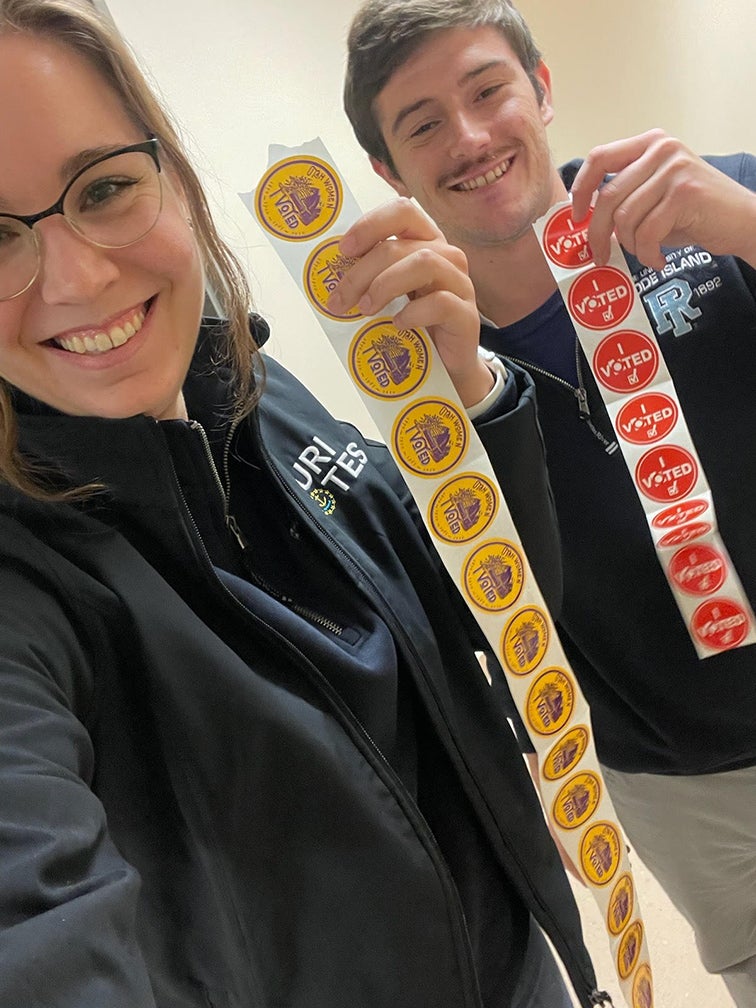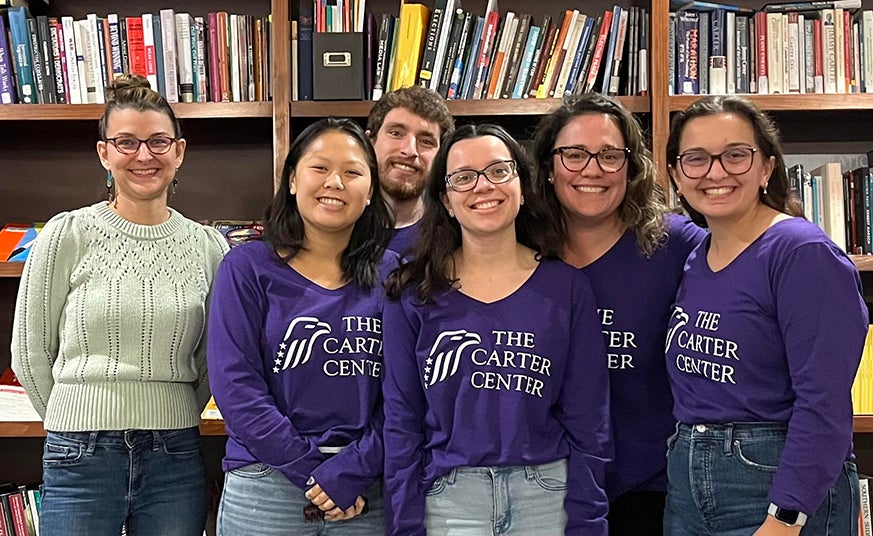KINGSTON, R.I. – Nov. 21, 2022 – Leading up to this year’s Election Day results, University of Rhode Island engineering professor Gretchen Macht and her team were thinking about how the votes would tally — but not for the reasons you’d think.
Macht’s URI VOTES laboratory (Voter OperaTions and Election Systems) recently received notification of two contracts for services from the U.S. Election Assistance Commission, totaling $434,000, and an extension on funding from the Democracy Fund for $100,000. Their work takes the team across the country, including recently to Utah and Georgia; she voted by mail ballot herself this past Election Day.

In Utah, the team observed vote-by-mail tabulation centers in four different counties, performing time studies on each step of the tabulation process and improving their understanding of how mail ballots are tabulated. In Georgia, they visited polling locations to observe the in-person voting process and collect time studies with a focus on the impact of recently passed legislation, including working with The Carter Center to observe elections and with Political Science Professor Bridgett King, Ph.D. at Auburn University.
An assistant professor of industrial and systems engineering, Macht is URI VOTES’ founding director. She’s joined by a small interdisciplinary group of political scientists, architects, and engineers, including Nicholas Bernardo (URI ’18’19’22), Amber Fearn, Ph.D. student James Houghton (URI ’17’19), and Leonie Otte, a master’s student from Germany here on a Fulbright. The group takes an engineer’s approach to election science, using data analysis, simulation and modeling to overcome obstacles in the voting and election processes. Their work has also been supported by Rhode Island Secretary of State Nellie Gorbea, Rhode Island Board of Elections, Democracy Fund, Stanford-MIT Healthy Elections Project, and the National Science Foundation.
The work with the U.S. Election Assistance Commission is highly selective; applicants must be invited to submit before these products are released to the public and election districts. Funding will be used for expanded simulated modeling, applying mathematical analysis and to help elected officials process various questions and scenarios that arise in voting. They’ve also made a series of videos that election officials will be able to use for poll worker training, beginning early next year; an app is in the works as well.
The URI VOTES team uses their skills as industrial engineers to study a district’s voting process, observe, and ask and answer questions. Macht’s team bases their research on empirical information and values. They care about the process and results, not anyone’s individual vote.
“It’s about examining resource allocation. URI VOTES has gotten really good at creating tools,” said Macht; the team has also shared their work overseas with election officials in the U.K. and Brussels. She was recently named an election expert by MIT’s Election Lab and says that her elections work is a calling. “It’s inspiring to watch democracy at work.”
The team has provided data to help plan for the creation of satellite voting centers in Philadelphia and consulted for the city of Los Angeles, the nation’s largest voting district. Before this kind of analysis, election officials relied on very basic tools to plan voting: rule of thumb, past experiences, and intuition.
There are many tools in an election scientist’s toolkit and different kinds of analysis have their uses. “We’re not a Swiss Army knife, we’re more of a scalpel in analysis of numbers,” she commented.
While Macht and her team are focused on the data and science over politics, they see the stress that election officials are under.
“They are maxed out in their jobs, doing more with less, under intense scrutiny. They need to count ballots, be security experts, and handle accounting at the same time,” she said. “They wear a lot of hats.”
She notes that election administrators want to do a good job. Theirs is not a stepping-stone job as with other elected or appointed positions: “I think election officials are among the most patriotic people you’d meet. They are passionate about their work in the democratic process.”
Her team’s neutral approach to data means they can easily navigate typical barriers of red state versus blue state.
“As engineers, we get into more doors,” she admits. Working at the intersection of humans, technology and democracy, there’s no other place Macht wants to be, touting the value of math as a tool to help. Voting officials can use their expertise to run models and achieve greater efficiency and efficacy. Elections can run with less waiting in line and with quicker results tabulated. Their work can help democracy run more smoothly, lessening one cause for anxiety at election time.
Their work demonstrates the value of industrial engineering, even if that’s the last thing you’re thinking about as you enter the voting booth. “As we industrial engineers like to say, 99% of the world doesn’t see what we do, but we all use it every day, whether swiping your EZ pass or your work badge.”
Now that the 2022 midterms are in the past, URI VOTES will use this year’s data to better understand vote-by-mail tabulation.

